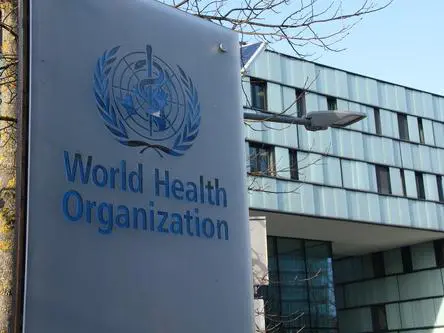Washington's decision to halt U.S. funding to the World Health Organization (WHO) when the COVID-19 pandemic is sweeping the world is both unethical and irresponsible, a Cuban envoy has told Xinhua.
Ana Silvia Rodriguez Abascal, deputy permanent representative and charge d'affaires of the Cuban mission to the United Nations, said funding is "needed now more than ever to address the pandemic and other global health challenges across the globe."
"The lives and health of millions of people in developing countries will be severely impacted, all because the Trump Administration is playing politics and pursuing geo-strategic interests," the diplomat noted.
U.S. President Donald Trump announced on April 14 that his administration is halting the nation's funding to the WHO, a move experts have warned against, as COVID-19 continues to wreak havoc globally.
Talking about President Trump's accusations against both China and the WHO, Rodriguez Abascal said that the accusations "will not result in the U.S. nor the rest of the world being in a better position to face the current pandemic or any other global challenge."
"These accusations should be understood as what they really are: a new attempt to deviate international attention from the disastrous domestic situation and federal handling of the pandemic in the U.S.," Rodriguez Abascal noted.
Talking about how the international community should oppose the growing stigmatization, discrimination and politicization of the COVID pandemic, the Cuban envoy stated that "stigmatization, discrimination and politicization are not the way to confront the current COVID-19 pandemic or any other global challenge. On the contrary, what the world needs in these pressing circumstances, more than ever, is the collective effort of all countries."
"As the UN secretary general has said several times, as an international community we are only as strong as the weakest one of us," Rodriguez Abascal noted.
"The way forward in confronting the severe health, social and economic impacts of COVID-19 should be multilateralism and international cooperation, science-based dialogue, exchange of best practices and lessons learned, and solidarity," she added.
"Blaming and shaming efforts for political purposes, like the ones we are seeing every day from Washington, will only widen the divide between nations in a context where unity of action is the only thing that will allow humanity to overcome this global challenge," said the envoy.
"It is crucial to stand by and support the UN system efforts, in particular the WHO, to face this pandemic," she noted.
On the consequences that stigmatization, discrimination and politicization of the virus will have on the global community, the envoy stressed that "when political leaders blame countries and groups of individuals for the spread of COVID-19, they are also fueling and spreading other very dangerous viruses, like racism, racial discrimination, xenophobia and intolerance, which have heavy tolls on societies and the lives of millions."
"Here in New York, there have been reports on the increase of hate crimes against people of Asian descent, because of very regrettable, offensive and absurd declarations made by President Trump and other U.S. government officials, calling COVID-19 the 'Chinese Virus' or the 'Wuhan Virus,'" said Rodriguez Abascal.
Speaking of her own country's efforts in helping other countries in the fight against the virus, she said that Cuba has sent 22 medical brigades of over 900 doctors, nurses and technicians to Latin American and Caribbean, African and European countries to help in the fight against COVID-19.
But the envoy said that "to do so, we have had to overcome not only the impact of the pandemic in our own country, but also the economic, commercial and financial blockade imposed on Cuba by the United States for over six decades. Needless to say, without the U.S. blockade, Cuba would have been in a better position to do much more to help other countries in need."
"At this difficult time, saving lives and helping people and countries in need should be the only priority for every responsible member state of the UN. We need to save lives," the diplomat noted.
"Every country should practice international solidarity and cooperation, not with beautiful words in UN documents and political statements, but with concrete actions that could make a difference," she said.
"It is time for solidarity and for preserving our common humanity. Future generations will judge how we responded to this global challenge," Rodriguez Abascal pointed out.
 简体中文
简体中文

